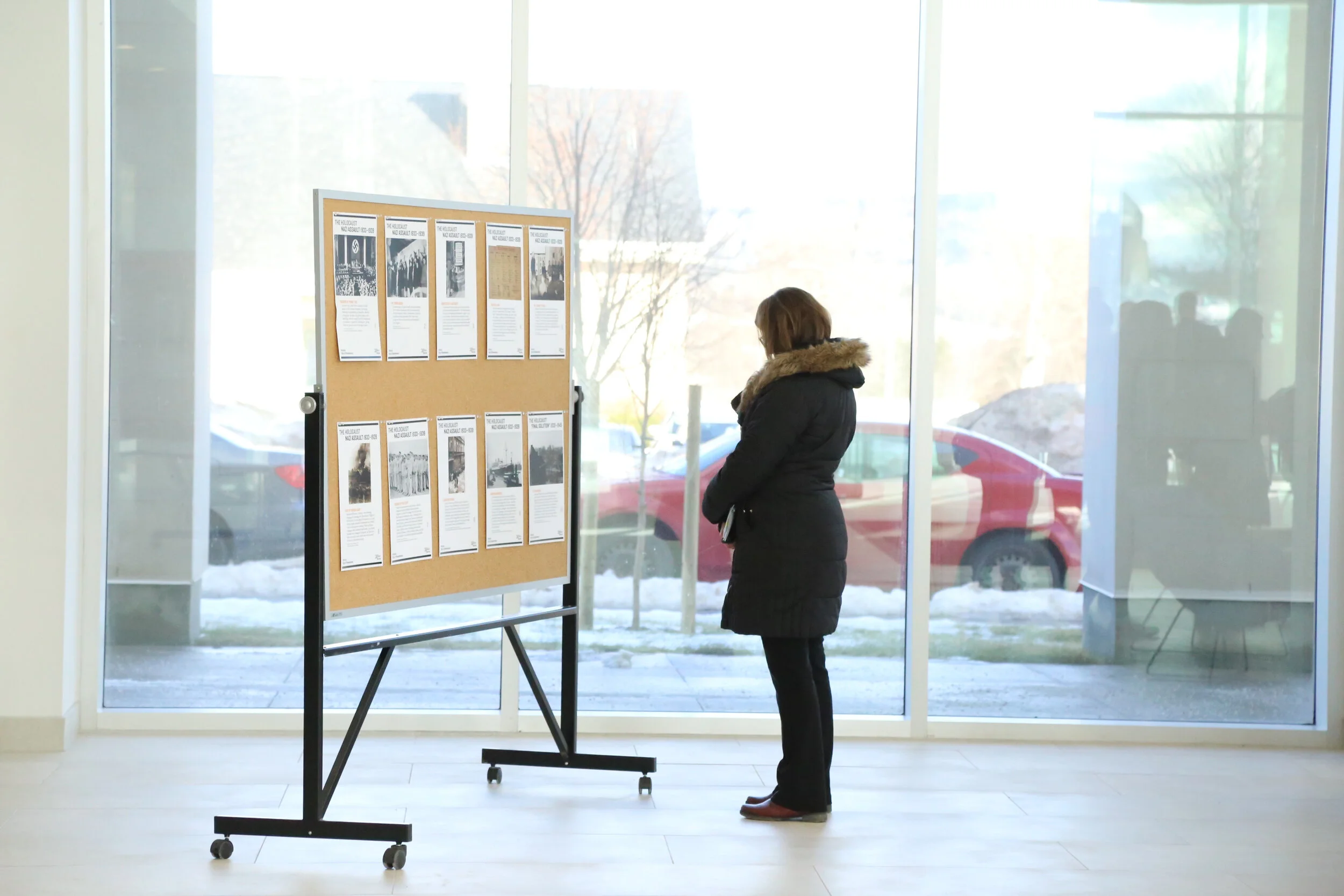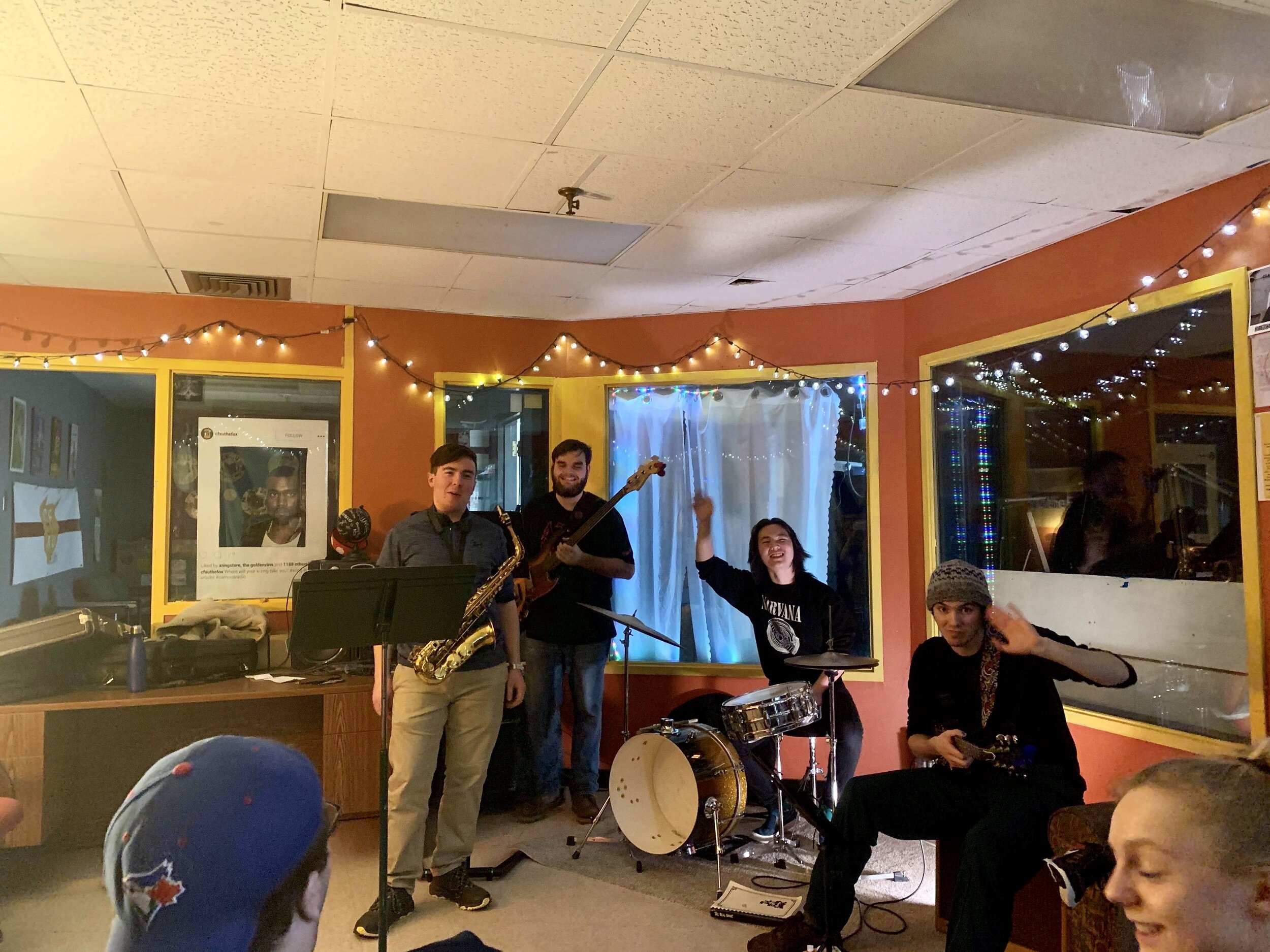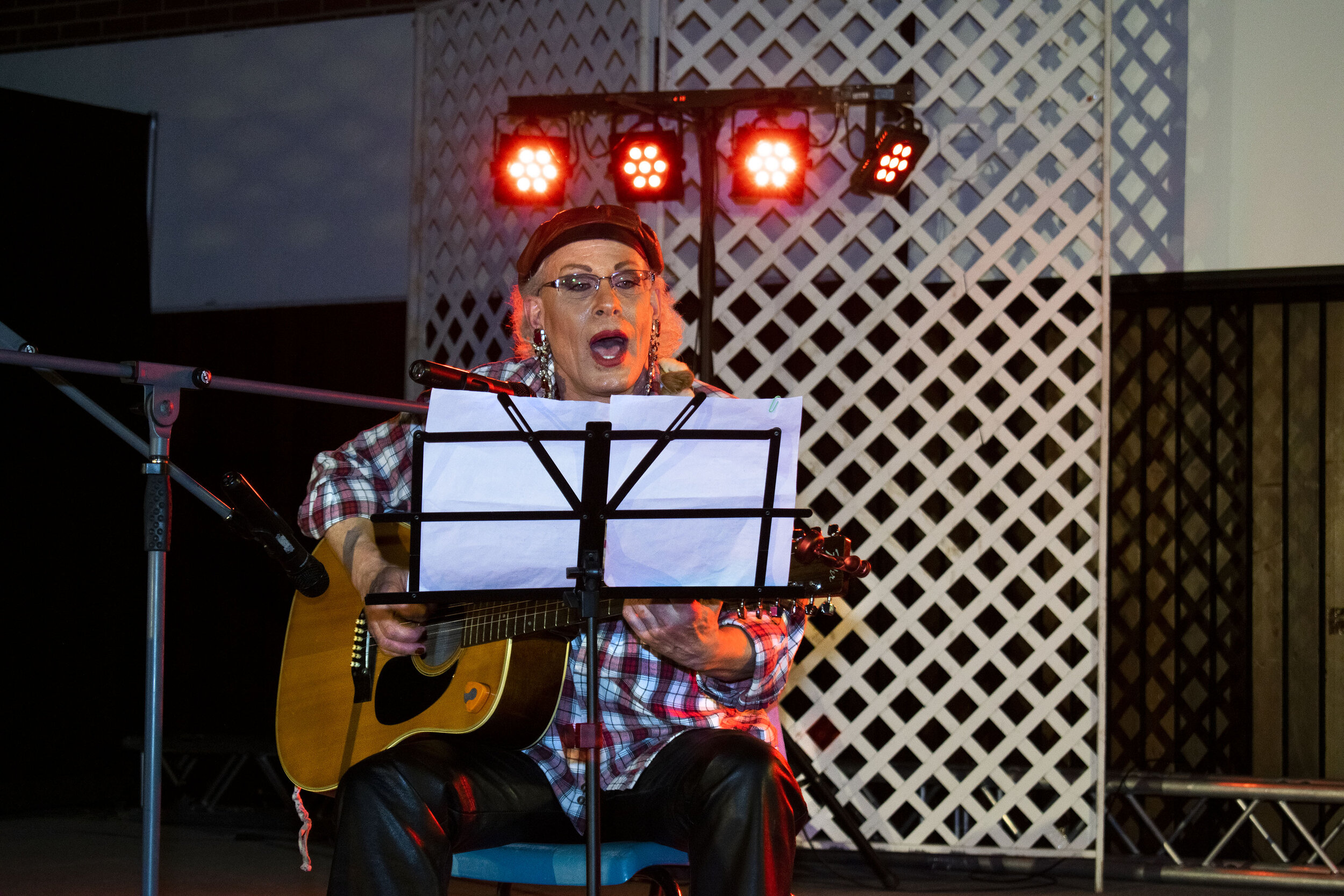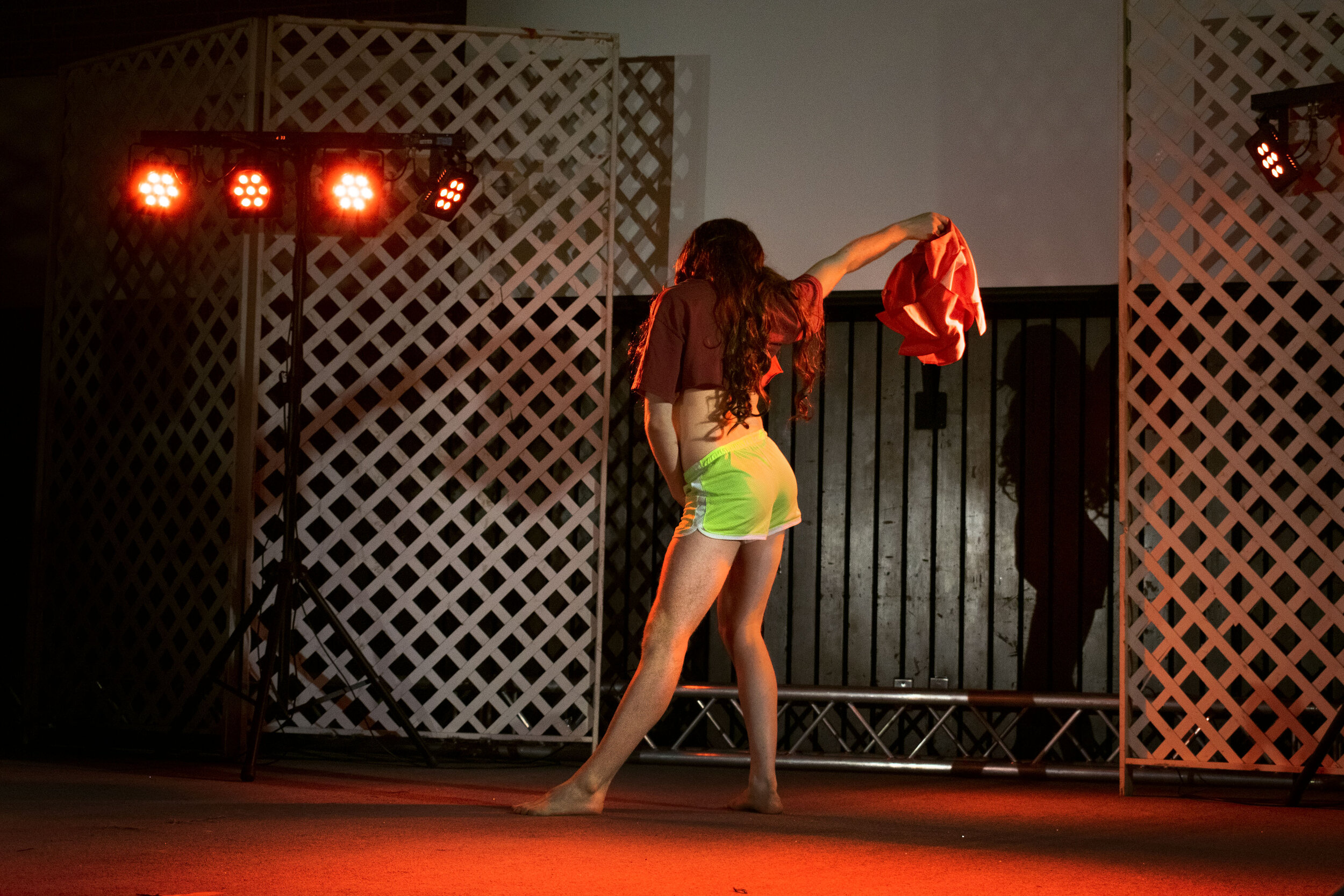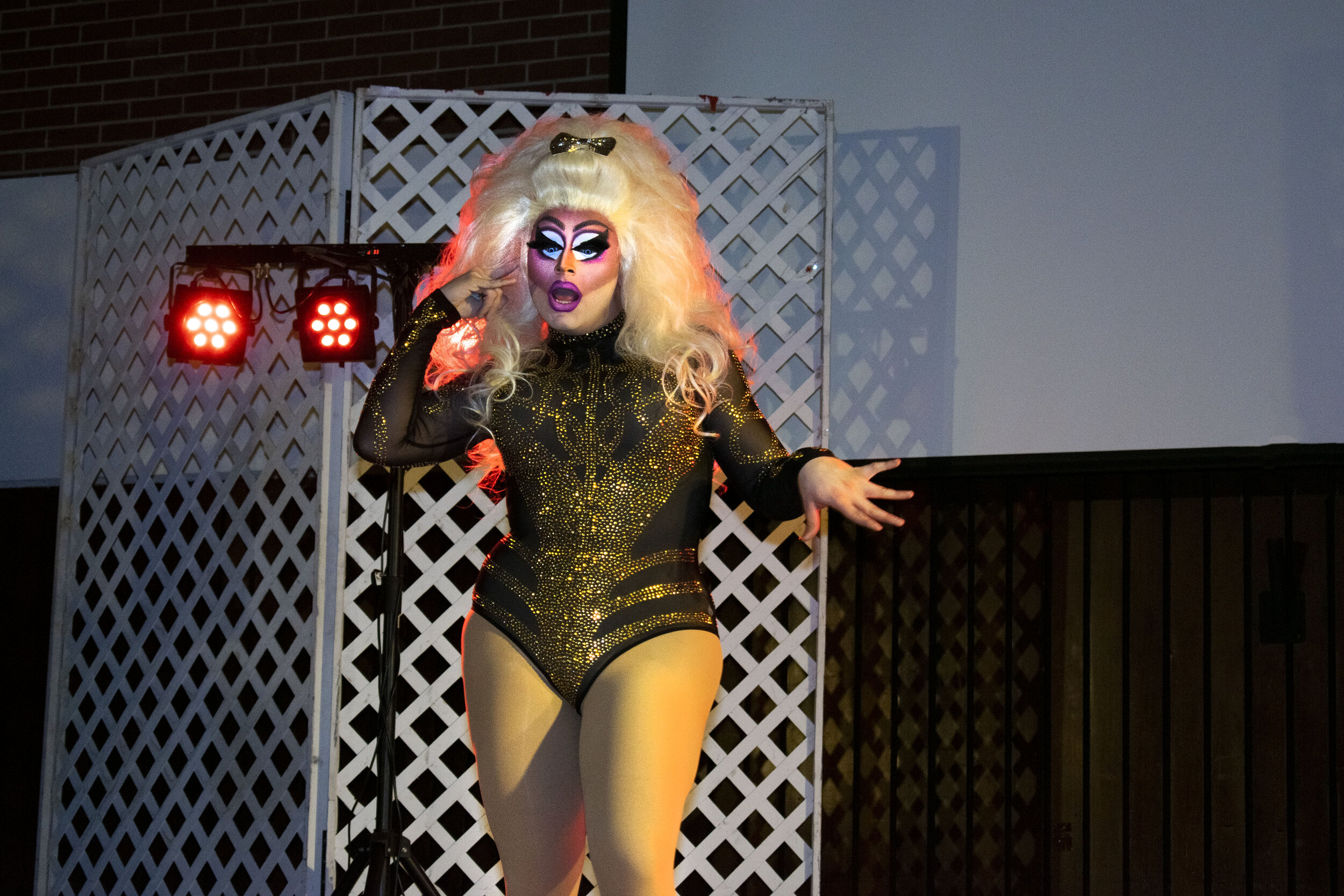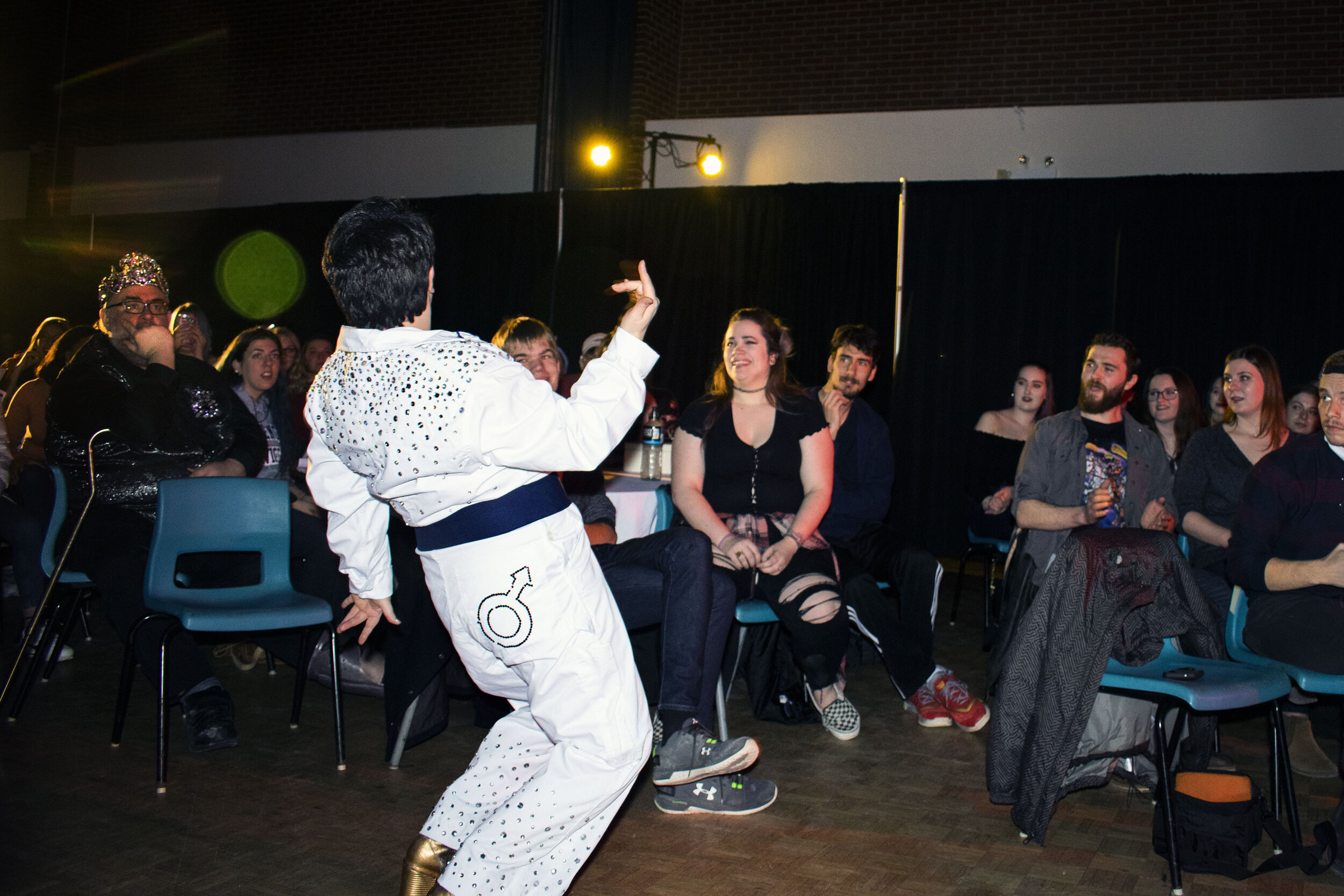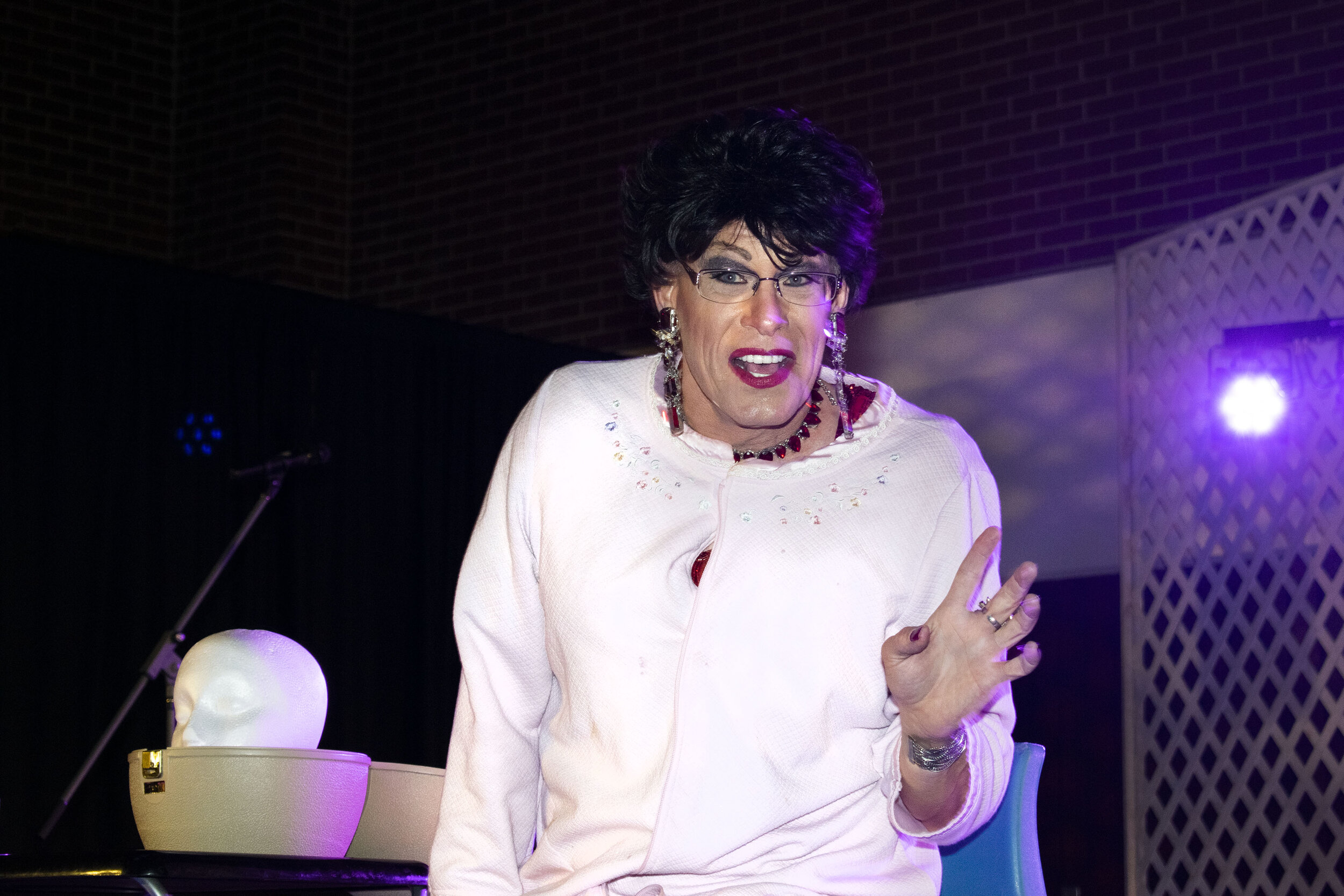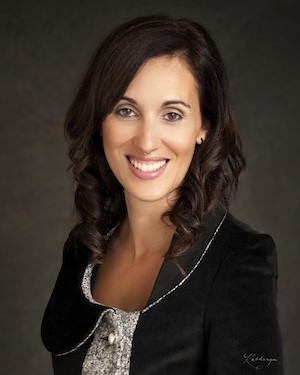Photos by Adelaide Strickland
While the show has only grown more and more successful, they’ve also run into difficulties financially. Tickets always sell out, yet the rising costs of space and security over the years have driven ticket prices up. Last year, for the first time, the show didn’t break even. “We’re not a money making venture, but it feels like we’re being forced to move that way,” says Frazer. “I’m really resisting that, because that’s not the point of the show … It has to be accessible, financially and physically.” Despite struggle, however, support from the community is keeping things going. Frazer recognized Impact Sound as a key supporter; the company has consistently provided a discount for their services, given the charitable nature of the show. The audience, of course, also plays a big role in the show’s continued success.
There are a number of ways that students and community members can get involved with and support the show. Ticket sales, according to Frazer, are always a good time— “it’s really rewarding to see the enthusiasm for that show build up as the tickets start to sell.” Proceeds from ticket sales and donations made at the show this year will be directed to Rainbow Railroad, an organization helping 2SLGBTQ+ refugees escape persecution and violence. Organizers are looking for support selling tickets in advance and at the door, as well as with the set-up and break-down of the production. Frazer also encourages people to think about performing— “it’s always been a part of our tradition that we encourage people to get on the stage” —in drag, or out of drag. The show welcomes Kings, Queens, genderfuck performers, burlesque performers, and pretty much anyone looking for a moment in the spotlight. Of course, for those who may not be all that keen on getting on stage, one of the best ways to support the show is to buy a ticket, and show up. “Just come, be yourself, and be fabulous,” says Frazer.
This year, Priscilla will be held on January 31st in the MacKay room. Tickets will be on sale starting January 22 at the X-Pride table in the Bloomfield lobby, and will cost $12 in advance, $15 at the door. Anyone looking to get involved in the show should contact Chris Frazer either in person or via email at cfrazer@stfx.ca.
Priscilla is part of X-Pride’s Pride Month at StFX. Other events include Amateur Drag Night, a sex-ed workshop by Venus Envy, a queer music night at the Inn, Sex Toy Bingo, and Rainbow Party. Details for these events can be found on Instagram @xpridesociety or on facebook in the X-Pride 2019-20 group.



